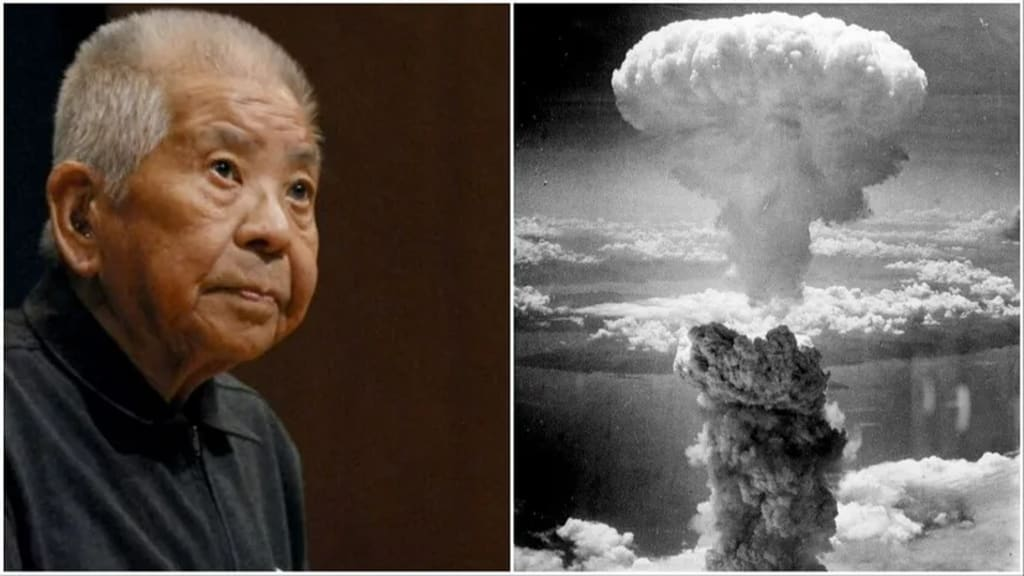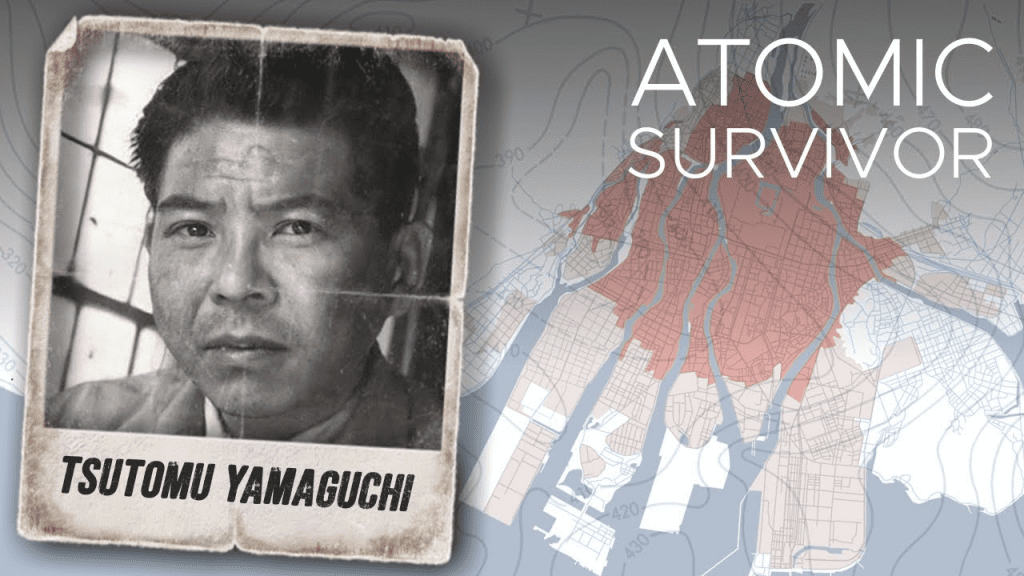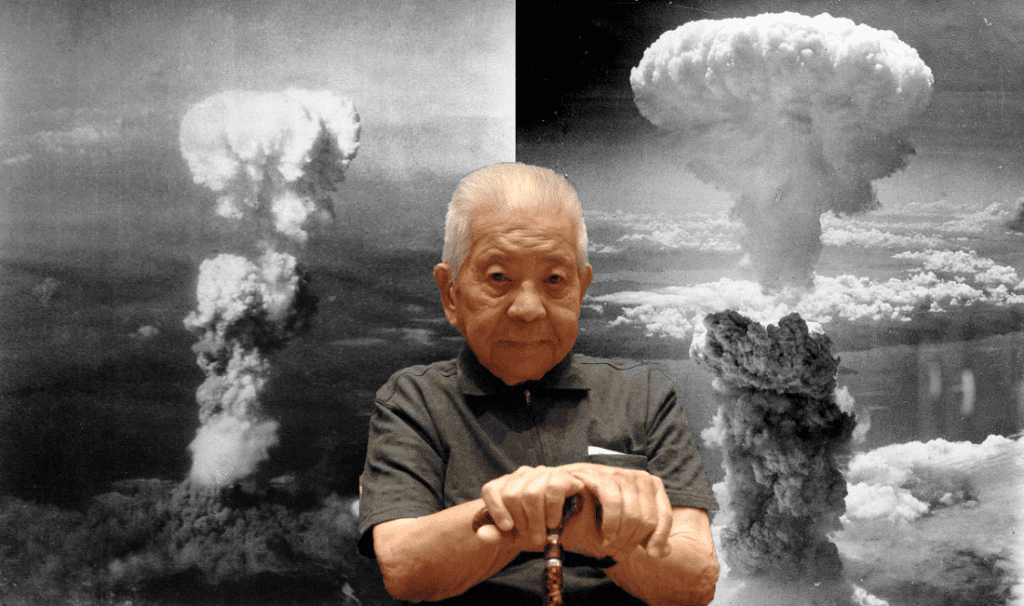History is full of stories of survival, but few are as staggering and as haunting as that of Tsutomu Yamaguchi. A Japanese man who witnessed firsthand the devastation of not one, but two atomic bombings, Yamaguchi’s life serves as both a terrifying testament to human endurance and a moving plea for peace. His story is not just about surviving the unimaginable it’s about choosing to speak out, even when the world doesn’t want to listen.

Caught in the Heart of Hiroshima
On August 6, 1945, Tsutomu Yamaguchi was on a business trip in Hiroshima. The Mitsubishi engineer was just finishing up his assignment and preparing to head home to Nagasaki. As he made his way to the shipyard that morning, he looked up and saw a B-29 bomber flying overhead. Moments later, a blinding flash tore through the sky. Yamaguchi was less than two miles from the epicenter of the atomic explosion.

The blast sent him flying. His body was badly burned, and his eardrums were ruptured. Yet somehow, he survived. Dazed and injured, he spent the night in a shelter and then, despite his condition, made his way to the train station the next day. His destination: Nagasaki.
Video:
AMAZING SURVIVOR Lives Through TWO Nuclear Explosions (Season 3) | The UnXplained
Lightning Strikes Twice
Yamaguchi returned to his hometown to rest and recover. With bandages covering his wounds, he reported for work on August 9 to explain what had happened in Hiroshima. As he stood in an office describing the devastation, another flash of white light filled the sky. This time, it was Nagasaki.
The second atomic bomb had detonated once again, less than two miles from where Yamaguchi stood.
Miraculously, he survived again. His family, including his wife and infant son, also lived through the second bombing, having taken shelter in a reinforced structure. But the cost was immense. The radiation from both blasts would go on to claim the lives of friends, neighbors, and eventually members of Yamaguchi’s own family through related illnesses.

Bearing Witness to the Unthinkable
Yamaguchi’s experience was so rare that he was later officially recognized by the Japanese government as a nijū hibakusha a person who survived both atomic bombings. Though many others may have experienced both events, he remains the only person officially recognized by the Japanese government for surviving both.
For decades, Yamaguchi remained relatively quiet about his experience. Like many survivors, the trauma was too deep, too personal. But as time passed and as the world continued to flirt with nuclear threats he began to speak out.

From Survivor to Peace Advocate
In his later years, Yamaguchi dedicated himself to nuclear disarmament. He shared his story in schools, gave interviews, and even wrote letters to global leaders urging them to reconsider the pursuit of nuclear weapons. He saw firsthand the horror such power could unleash not on soldiers, but on civilians, families, and children.
Video:
Tsutomu Yamaguchi | Brainfeed Magazine
In 2006, Yamaguchi spoke before the United Nations, pleading for an end to nuclear proliferation. “The reason that I hate the atomic bomb is because of what it does to the dignity of human beings,” he said. “I can’t understand why the world cannot understand the agony of the atomic bomb survivors.”
A Legacy Etched in Memory
Tsutomu Yamaguchi passed away in 2010 at the age of 93. Though his life was marked by unimaginable suffering, he used his pain to advocate for a more compassionate world. His story is often referenced not just as a fluke of survival, but as a symbol of resilience, humility, and the power of human conscience.
His message remains clear: humanity cannot afford to forget. Not Hiroshima. Not Nagasaki. Not the lives lost and not the lives changed forever by a flash of light.

Conclusion: Remembering What Matters Most
Today, Yamaguchi’s name might not be as widely known as those of world leaders or generals, but his legacy may be even more important. In a time where nuclear threats once again hang in global conversations, his voice echoes louder than ever.
He reminds us that beyond politics and power lies the human cost of war. And through his story, the world is challenged not just to remember but to change.



